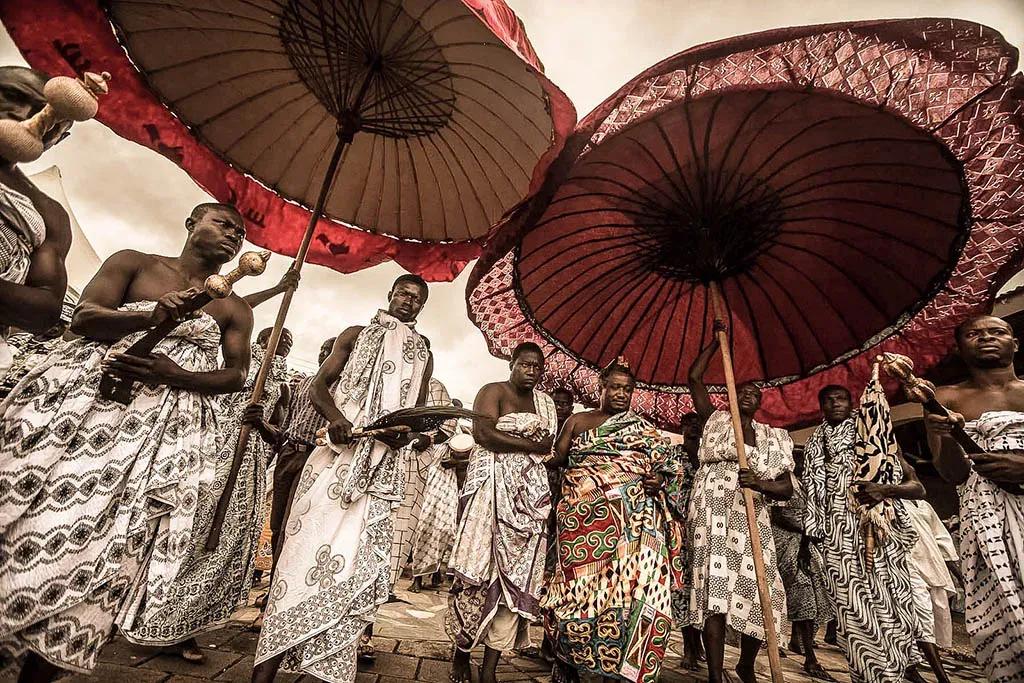unveiling the Tapestry of Ghanaian Culture: Marriage, Dance, Festivals, Language, Funerals, and Beyond
Table of Contents
- 1 unveiling the Tapestry of Ghanaian Culture: Marriage, Dance, Festivals, Language, Funerals, and Beyond
- 1.1 Marriage in Ghana: A Party of Love and Kinship
- 1.2 Ghanaian Dance: A Rhythmic Tapestry of Expression
- 1.3 Ghanaian Festivals: A Kaleidoscope of Color and Tradition
- 1.4 The Tapestry of Ghanaian Languages
- 1.5 Ghanaian Funerals: A Ritual of Farewell and Remembrance
- 1.6 A Cultural Odyssey: Exploring the Soul of Ghana
Ghana, a vibrant nation in West Africa, is a melting pot of diverse ethnic groups, each contributing too a rich cultural tapestry that is a source of national pride and interest for visitors. From conventional marriage ceremonies to lively dance performances, colorful festivals to the intricate tapestry of local dialects, and the solemn rituals of funerals, Ghanaian culture is a captivating spectacle that offers a glimpse into the heart and soul of this remarkable country.
Marriage in Ghana: A Party of Love and Kinship
Marriage in Ghana is a sacred union that extends beyond the couple to encompass their families and communities. Traditional marriage ceremonies are elaborate affairs,steeped in centuries-old customs and rituals that vary among ethnic groups.
- Engagement: The journey to marriage begins with the engagement ceremony, were the groom’s family presents gifts and a dowry to the bride’s family.
- Traditional wedding: The traditional wedding is the highlight of the marriage festivities, featuring colorful attire, drumming, dancing, and feasting.
- White Wedding: Many couples nowadays opt for a white wedding in addition to the traditional ceremony, adopting Western-style elements such as a white dress, bouquets, and formal vows.
Ghanaian Dance: A Rhythmic Tapestry of Expression
Dance holds a central place in Ghanaian culture, serving as a form of communication, entertainment, and spiritual ritual. Each ethnic group has its own unique dance styles, reflecting their history, values, and beliefs.
- Adowa: A traditional dance of the Akan people, featuring intricate footwork and elegant arm movements.
- Agbadza: A dynamic dance from the Ewe people, characterized by leaping, drumming, and vibrant costumes.
- Fontomfrom: A fun and energetic dance from the Ashanti people, performed at festivals and social gatherings.
Ghanaian Festivals: A Kaleidoscope of Color and Tradition
Throughout the year, Ghana hosts a multitude of colorful festivals that showcase the country’s rich cultural heritage. These festivals provide an chance for people to celebrate their traditions, connect with their roots, and revel in the beauty of their shared culture.
- Homowo Festival: Celebrated by the Ga people, Homowo commemorates their migration to present-day Ghana through a ritual sprinkling of ”kpokpoi,” a local delicacy.
- Akwasidae Festival: A traditional festival of the Ashanti people, Akwasidae marks the end of the 40-day calendar cycle and involves drumming, dancing, and the sharing of traditional dishes.
- Oguaa Fetu Afahye: A grand festival of the Fante people, Oguaa Fetu Afahye features regatta races, street processions, and a grand durbar of chiefs and elders.
The Tapestry of Ghanaian Languages
Ghana is a multilingual nation, with over 50 indigenous languages spoken by its diverse population. Each language reflects the unique identity and worldview of its respective ethnic group.
- Akan Languages: Spoken by the largest ethnic group in Ghana, Akan includes dialects such as Twi, Fante, and Ashanti.
- Ewe Language: The language of the Ewe people,spoken in southeastern Ghana and neighboring Togo.
- Dagbani Language: Spoken in northern Ghana, Dagbani is the language of the Dagomba people.
Ghanaian Funerals: A Ritual of Farewell and Remembrance
Funerals in Ghana are elaborate affairs that blend traditional customs with modern elements. They are not merely a time of mourning but also a celebration of the deceased’s life and a gathering of family and community members.
- Wake-Keeping: The deceased’s body is laid in state, with family and friends keeping vigil and sharing stories of the departed.
- Funeral Procession: A solemn procession takes the deceased’s body to the burial site, with mourners dressed in black or white.
- Burial Ceremony: The deceased is laid to rest with prayers, libations, and traditional rituals.
A Cultural Odyssey: Exploring the Soul of Ghana
Ghanaian culture is a vibrant,dynamic,and multifaceted tapestry that weaves together the threads of tradition,art,music,dance,and language. To experience the true essence of this remarkable country is to partake in its cultural traditions, attend its colorful festivals, learn its diverse languages, and immerse oneself in the rhythms and spirit of its people.
Ghana offers a wealth of experiences for travelers seeking an authentic cultural odyssey. From visiting ancient palaces to exploring bustling markets, attending drumming and dance workshops to savoring traditional cuisine, Ghana invites visitors to discover the heartbeat of its vibrant and welcoming culture.

